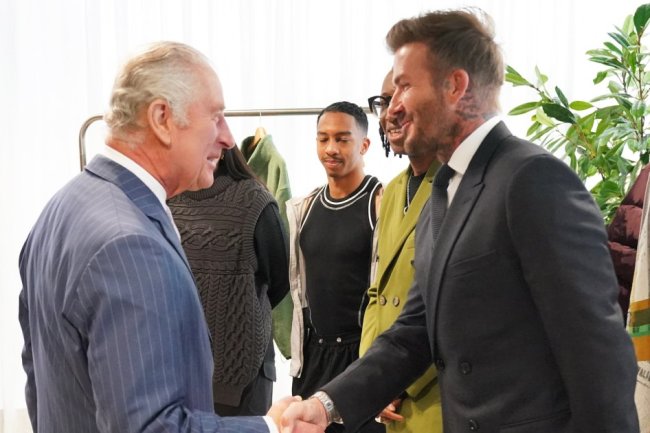No One Is Happy About Diversity Efforts at Work
The Supreme Court’s decision to eliminate affirmative action hits workplaces as diversity initiatives face pressure from supporters and skeptics; ‘Stop being so woke’ Photo Illustration by The Wall Street Journal, iStock (2) Photo Illustration by The Wall Street Journal, iStock (2) By Te-Ping Chen and Ray A. Smith July 3, 2023 5:30 am ET At Clayton, a Tennessee-based home builder, some of its 26,000 employees say that the company’s diversity measures don’t go far enough. Others say those efforts go too far. Well before last week’s Supreme Court decision on affirmative action, tension had been building in workplaces across the country over efforts to hire,


At Clayton, a Tennessee-based home builder, some of its 26,000 employees say that the company’s diversity measures don’t go far enough. Others say those efforts go too far.
Well before last week’s Supreme Court decision on affirmative action, tension had been building in workplaces across the country over efforts to hire, retain and advance diverse workers. Companies are striving to demonstrate their commitment to minority employees’ success without being seen as limiting opportunities for others.
Caught in the middle are human-resources leaders like Sarah Sharp, a vice president of human resources at Clayton, who says she is working to promote overall fairness in hiring, an approach that helps underrepresented workers without, she hopes, alienating others.
The Supreme Court has banned colleges from using race as admission criteria, essentially ending affirmative action. California did the same 25 years ago. WSJ explains how what happened then can offer a road map what could happen now. Photo Illustration: Madeline Marshall
“There are people who say, ‘I really wish we were more diverse,’ and I’ve also seen people say, ‘Stop being so woke,’ ” says Sharp.
The removal of race as a factor in college admissions stands to change the pipeline of diverse graduates companies can hire and likely opens challenges to longstanding hiring and promotion practices, legal experts say. For managers, the challenge is about fairly assessing a job candidate’s skills or an employee’s readiness for promotion at a time when workplace diversity measures already face questions from both supporters and skeptics.
In interviews with a dozen current and former diversity and HR heads, leaders say they are hearing from employees discouraged about what they view as lost momentum in advancing people of color and underrepresented minorities after George Floyd’s murder in police custody led to greater national attention to race and inequity. Leaders say they are also facing quiet, but no less insistent, pushback from some workers, with combative questions about diversity initiatives in surveys and company town halls.

Complicating the situation is an uncertain economy that has prompted cuts to diversity, equity and inclusion-related budgets and staff, often because those roles are tied to recruiting, among the first functions hit when companies pull back on hiring.
Corporate diversity efforts were supercharged following Floyd’s killing in mid-2020 that sparked a wider examination of racial inequity at work. Those programs still garner investment, but at a reduced clip. A Gallup survey of 140 HR chiefs at large companies found 59% were planning to increase their DEI budgets in the next 12 months, down from 84% in 2022.
Energy around DEI goals is flagging, Laura Agharkar,
Nasdaq’s global head of diversity, equity and culture, said at a forum in May.“We’re seeing a dip,” she told an audience at the Diversity Fatigue Summit, convened to drive momentum on workplace diversity. Employees of color, in particular, feel “the numbers aren’t changing fast enough,” she added.
At that online forum, other executives from Verizon and Xerox talked about staff disappointment with the slow progress of hiring and promoting people of color.
Some Black employees and executives have expressed concerns their companies aren’t moving quickly enough on their commitments, says Yetta Toliver, global head of diversity, inclusion and belonging at Xerox.
To show staff the company is staying on task, Xerox has created tools including a dashboard that show progress made on diversity over time while also illustrating that such progress doesn’t happen overnight.
“You will have peaks and valleys,” Toliver said in an interview.
A March survey of 1,500 C-suite executives, board members and department heads by staffing company Kelly found diversity efforts slowing or hitting a plateau. Just over a fifth of senior leaders in the survey said they were willing to host open conversations about diversity, down from 30% last year.
Turnover in DEI roles is high, with rising layoffs and staff changes. Nearly 30% of workers who began a diversity-related role after mid-2020 have left the field altogether, according to employment data provider Live Data Technologies.
Americans are divided along racial and political lines on the importance of diverse workplaces, according to a Pew Research Center survey published in May. Nearly 40% of people surveyed rated having a workplace with different ethnicities as not or not very important to them.
Dawn Christian, who runs a diversity consulting firm in the Washington, D.C., area, says her corporate clients are cutting diversity budgets and that some seem newly resistant using the term “diversity” in training.
They still want training, she says, but they tell her: “We may need to take the ‘D’ out of it,” she says.
Leaders are taking steps to avoid alienating workers who aren’t afraid to say they think diversity practices leave them at a disadvantage.
Jonathan McBride, a global managing partner who leads the DEI practice for recruiting firm Heidrick & Struggles, says the companies he works with worry about alienating some workers and say feelings of belonging are dropping among white men, as shown in internal surveys.
Research on inclusive workplace practices by Kincentric, a unit of executive-search firm Spencer Stuart, shows that more than half of white men surveyed by the group felt devalued at work, or not given full credit for their contributions. Roughly 43% of ethnically diverse men reported the same.
McBride says he anticipates the Supreme Court’s dismissal of affirmative action could have a chilling effect inside companies. “If you say this about college admission, what about hiring?” he asks.
SHARE YOUR THOUGHTS
Is there a business case to be made for corporate DEI programs? Why or why not? Join the conversation below.
Sharp, the Clayton VP, says she has worked to increase objectivity in hiring, with the goal of attracting and promoting more people of color and other minorities, but that she couches these initiatives in the language of overall fairness.
At a time when employees are being asked to do more with less, spending time in diversity-training workshops and courses is a hard sell, says Movell Dash, founder of Modas Personal Development, a DEI consulting firm whose clients include Burberry, The Barbican and RenaissanceRe.
“It’s people saying, ‘Listen, we’re doing this stuff and you’re asking me to deal with these courses alongside my day job. I don’t have enough hours in the day,’ ” she says. “Then it tips over into backlash when that’s not heard.”
Write to Te-Ping Chen at [email protected] and Ray A. Smith at [email protected]
What's Your Reaction?






















